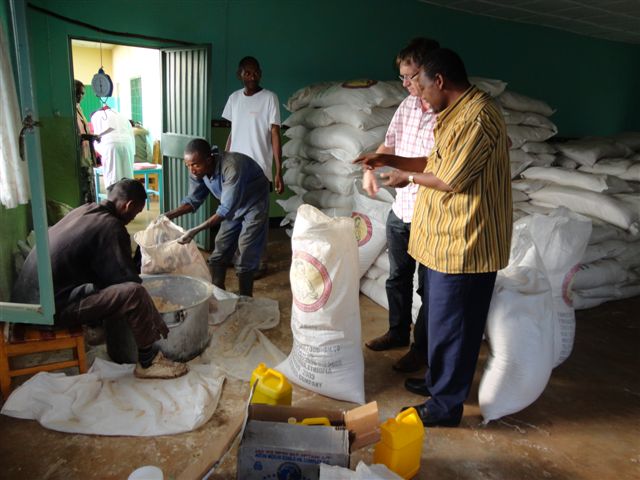This guest post is from David Dalton, CEO of Plan Ireland who is in southern Ethiopia. I have recently begun to support the work of Plan as a regular donor and contacted them to see how I could support them with offering space on the blog to give information about the current Famine in East Africa.
The facts of the current crisis in East Africa are startling and incomprehensible.
FEWS Net (Famine Early Warning Systems Network) established after the 1985 famine, has said that this is the worst drought in 60 years. The UN estimates that over 12.39 million people are in need of food assistance in the East Africa, out of which 4.8 million people are in Ethiopia – that’s the same as the entire population of Ireland. In the case of neighbouring Somalia (where over 2.8 million people need immediate life-saving support), famine was declared in July, eight months after the first FEWS Net forecast. The UN’s first appeal came after that. By which time, it was already at tipping point.
It’s one thing trying to get your head round the statistics and quite another facing the tragic personal stories.

David Dalton in a feeding centre in Ethiopia this week
Earlier this week in Shebedino, southern Ethiopia, I met a mother of five children, Meselech. She was breastfeeding her four-month-old baby Abraham, or rather, desperately trying to. It was very distressing to witness.
For families who are struggling to find one meal a day, what is the difference between a declared famine and an ‘unofficial’ famine? What is the difference between severely malnourished and ‘just’ malnourished? The answer is, not much. Nutrition and food can be technical subjects, but for mothers like Meselech who are struggling to feed their children, hunger is simple. It means their children can’t walk, play or even sleep.
The UN says it needs €1.4 billion for the Horn of Africa. So far donors have pledged half of what is needed. The sad thing is, this means half the people in need will go hungry. Recent reports have indicated that people in Ireland have so far been generous in their support with figures released by NGO umbrella organisation Dochas showing that donations to Irish aid agencies are exceeding €7 million. However, this crisis is not going away soon. There is still a great need for people in Ireland and around the world to be more generous and act now.
I sit here writing this, finding it hard to convey the ongoing urgency of the situation. Statistics and emotive stories aren’t enough. ‘Famine fatigue’ is setting in and there is a huge disconnect for many people who are reading this at home or at work. Given the scale of the crisis, is it possible to make any difference at all?
The answer is yes, it is possible. But to make a real difference, we need sustainable long-term solutions to stop this happening time and time again.
This will involve better food and nutrition security, better public health systems, disaster risk reduction measures, better agricultural and live stock practices, better trade policies etc. And most importantly, it is necessary to place children at the heart of any discussion on ‘drought’ or food crisis.
In a crisis like this, children are the most vulnerable. They are always the worst affected and often their voices are not heard. In addition to concerns over immediate welfare and malnutrition, there are worries over child protection with families being separated, children having to travel far from home to earn money for food, and fears of increased child labour, school dropout and even child marriage.
To give children any hope for the future, the effect of the crisis must be minimised as much as possible. Plan believes it is vital that children have a sense of normality in a situation which is anything but normal.
Plan Ireland is a children’s charity currently operating in Ethiopia, Kenya and South Sudan to support children and their families who are in need of urgent food relief, clean water and emergency health assistance. In addition to immediate aid, Plan is focusing on child protection and longer term livelihood programmes to reduce the risk of food shortages in the future.
To make a donation to fund this vital work in East Africa or to sponsor a child, visit www.plan.ie or freefone 1800 829 829.


